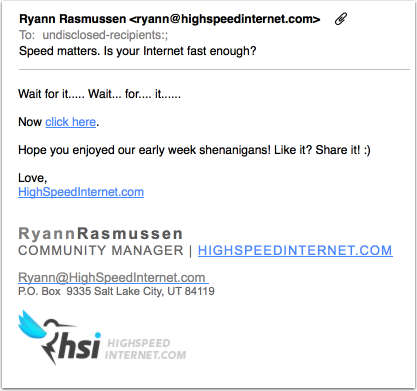There is a lot of mail that goes out to recipients that’s not really spam, but isn’t fully wanted. To describe these different kinds of mail, people have invented pork-product related terminology. Ham and bacn are both used to describe wanted mail, although possibly not wanted right now.
Now we have SCRAPPLE. It seems over the weekend a number of members of the Science Fiction Writers Association received email from someone asking them to consider one of his writings for an award. Reading through the tweets, this person typed hundreds of email addresses out of the SFWA directory into their mail client. And then sent mail to that list.
Recipients of that mail then went to twitter to complain about abuse of their email addresses in this way. Being writers, they discussed what word that would describe “something like spam, but not really.”
@talkwordy came up with Scrapple. Now, for those of you who don’t live in a very small part of the mid-Atlantic region, you may not know what scrapple is. Scrapple is a loaf pork product made from, well, scraps of pig. It often has a weird greenish tinge to it, presumably from the liver. My grandmother, having grown up in that small part of the mid-Atlantic region, used to eat it when she could find it. Usually it was in small, country diners where the waitresses call you darlin’ or hun.
By the end of the discussion the definition of scrapple was: Unwanted email from a person you know, which is annoying but not completely irrelevant to your interests, often manual address list creation.
There you have it. Scrapple joins bacn, ham, spam, and spim to describe different kinds of email.
Read More